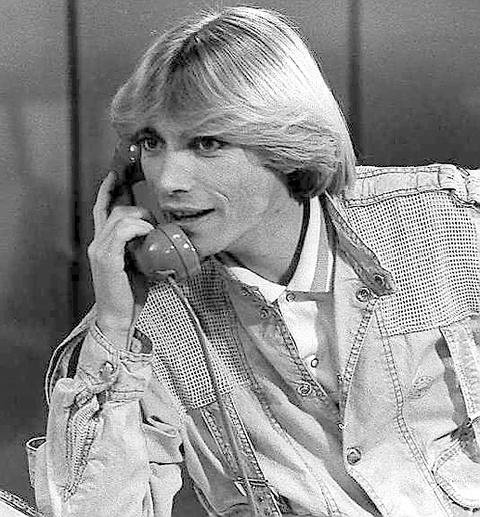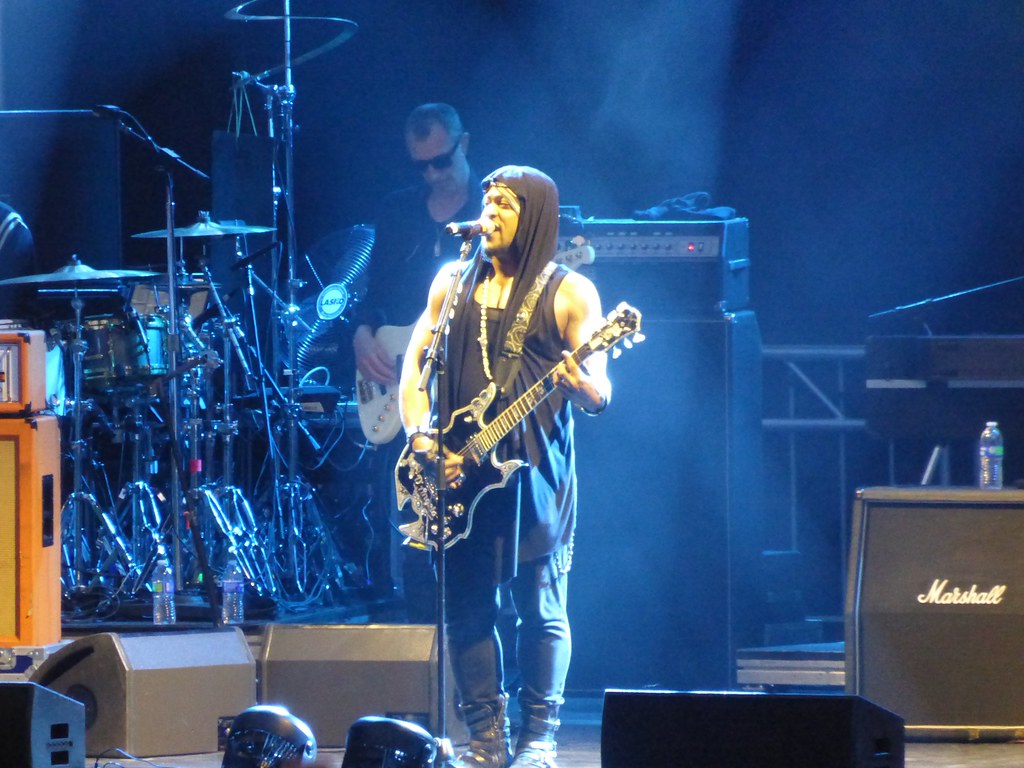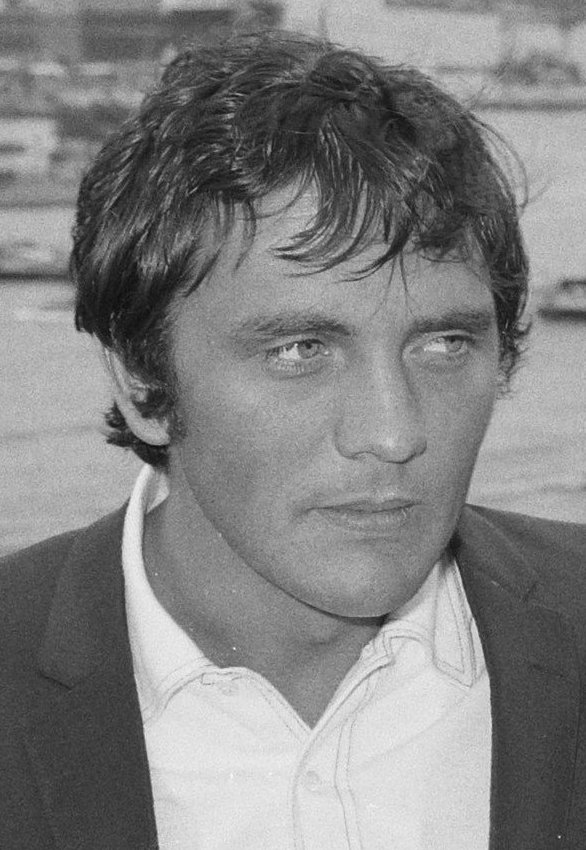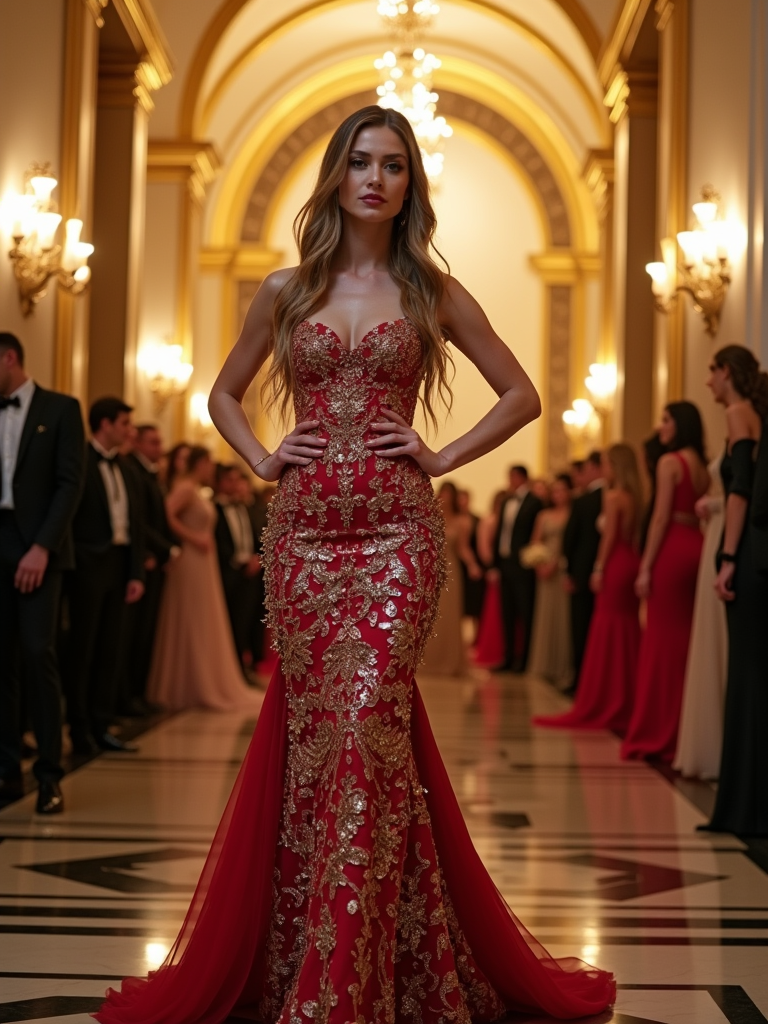
The music world mourns the profound loss of a true visionary, D’Angelo, the Grammy-winning singer-songwriter and producer whose incandescent talent not only defined the neo-soul movement of the mid-1990s but also carved a unique, indelible path through the landscape of contemporary R&B. His passing on Tuesday, October 14, at the age of 51, following a courageous and prolonged battle with cancer, leaves a void that resonates deeply within the hearts of fans and fellow artists alike. Born Michael Eugene Archer, D’Angelo’s career was a mesmerizing tapestry woven with threads of intense brilliance, prolonged silences, and ultimately, triumphant returns, each chapter adding to the mystique of an artist fiercely dedicated to his craft.
Few artists have navigated the pressures of commercialism and the demands of pure artistry with such a singular, uncompromising spirit. D’Angelo’s journey was marked by a profound commitment to his musical vision, often at the expense of public visibility, making each release an event of seismic cultural significance. His work transcended mere entertainment, offering a deeply soulful, complex, and often challenging reflection of the human experience. As we reflect on his extraordinary life, we delve into the pivotal moments that shaped the man and the legend, exploring the influences, triumphs, and trials that defined his inimitable career.
This in-depth exploration into D’Angelo’s life and artistry aims to honor the ‘shining star’ whose light, though dimmed in this life, continues to illuminate the world through his extraordinarily moving music. We will trace the arc of a career that was as much about profound introspection and withdrawal as it was about groundbreaking musical innovation, celebrating the enduring gift of song that Michael D’Angelo Archer has left for generations to come.

1. **The Tragic Passing of a Neo-Soul Legend at 51**The music community received the heartbreaking news on Tuesday, October 14, 2025: D’Angelo, born Michael Eugene Archer, had passed away at the age of 51 after a prolonged and courageous battle with cancer. His family confirmed the news to USA TODAY, Variety, and TMZ through a statement provided by a representative for RCA Records, articulating their profound grief while celebrating his immeasurable contributions to music. The announcement plunged the entertainment world into mourning, prompting an immediate outpouring of tributes from across the industry.
“The shining star of our family has dimmed his light for us in this life,” D’Angelo’s family expressed, conveying the depth of their loss. They further stated, “After a prolonged and courageous battle with cancer, we are heartbroken to announce that Michael D’Angelo Archer, known to his fans around the world as D’Angelo, has been called home.” The statement eloquently captured the duality of their sorrow and gratitude, adding, “We are saddened that he can only leave dear memories with his family, but we are eternally grateful for the legacy of extraordinarily moving music he leaves behind.”
Artists and collaborators from every corner of the musical spectrum quickly shared their condolences and reflections on his impact. Beyoncé paid tribute to the ‘inimitable’ D’Angelo, affirming, ‘We will never forget you.’ Jamie Foxx, Maxwell, and Tank were among those who reacted to the singer’s death, with Foxx recalling his awe upon first encountering D’Angelo’s music and live performances. DJ Premier also shared a heartfelt message on X, lamenting, “Such a sad loss to the passing of D’angelo. We have so many great times. Gonna miss you so much. Sleep Peacefully D’ Love You KING.”
Music icon Nile Rodgers recounted an early encounter with D’Angelo, where record executive Gary Harris brought the aspiring artist to Rodgers’ New York apartment. Rodgers remembered listening to D’Angelo’s music and advising him to “put it out. It’s perfect!” He noted that about a year later, he heard one of those ‘smoking’ songs on the radio, confirming its genius and the artist’s unique talent. These tributes collectively underscore the immense respect and love D’Angelo commanded, not just for his music, but for his authentic spirit and groundbreaking artistry.
Read more about: The Haunting Echoes: Unpacking Amy Winehouse’s Final Performances and the Tragic Road to the 27 Club

2. **Roots of Rhythm: Early Life and the Genesis of a Musical Prodigy**Michael Eugene Archer, who would later be known globally as D’Angelo, was born in South Richmond, Virginia, in 1974. His formative years were deeply steeped in the rich traditions of the church, an environment that profoundly shaped his musical sensibilities. As the son of a Pentecostal preacher, D’Angelo’s exposure to gospel music and its spirited, emotive performances began at an extremely young age, laying the groundwork for his distinctive vocal styling and instrumental prowess.
His innate musical talent was evident remarkably early, with D’Angelo reportedly learning piano from the tender age of three. This early immersion in music, combined with the fervent, soul-stirring atmosphere of his father’s church, provided a powerful incubator for his burgeoning artistry. He honed his skills not only as a keyboardist but also as a vocalist, playing and singing in church, absorbing the foundational elements of soul, gospel, and R&B that would become hallmarks of his signature sound.
Throughout his adolescence, D’Angelo actively pursued his musical passion, performing locally in various groups that showcased his evolving talents. He was a member of ensembles such as Three of a Kind, Michael Archer and Precise, and Intelligent, Deadly but Unique (I.D.U.), gaining valuable stage experience and refining his performance skills. His talent did not go unnoticed, as he achieved an early recognition at the legendary Apollo Theater, winning one of the venue’s famous Amateur Night competitions in 1991 when he was just 16 years old.
This early success and dedication ultimately led to his first significant industry step in 1993, when he signed with EMI Records. Even at this nascent stage, D’Angelo was not merely a performer; he was a budding songwriter and producer, already demonstrating the comprehensive musicianship that would define his groundbreaking career. His journey from a church prodigy in Virginia to a signed artist marked the beginning of a profound influence on contemporary music.

3. **The Breakthrough Chord: “U Will Know” and Mainstream Recognition**D’Angelo’s formal entry into the national music scene and his first significant mainstream breakthrough arrived in 1994, not as a solo artist, but as a key creative force behind the supergroup Black Men United. This collective, a powerful assembly of R&B powerhouses, came together to record the single “U Will Know” for the film “Jason’s Lyric.” D’Angelo earned his big break by co-producing and writing this impactful track, marking his initial foray into a wider audience’s consciousness.
Black Men United featured an impressive roster of celebrated R&B artists of the era, including the likes of Boyz II Men, Usher, Al B. Sure!, R. Kelly, and Lenny Kravitz, among others. The collaboration elevated D’Angelo’s profile, showcasing his talent for crafting compelling, soulful compositions that resonated with a broad listenership. His contribution to such a high-profile project immediately signaled his arrival as a notable talent within the R&B landscape.
The song itself was a commercial success, quickly ascending the charts and proving its appeal. “U Will Know” went on to peak at an impressive No. 5 on Billboard’s Hot R&B/Hip-Hop Songs chart. This strong performance demonstrated D’Angelo’s ability to contribute to commercially viable music, setting the stage for his subsequent solo endeavors and establishing him as an artist capable of both critical acclaim and popular success.
This mainstream breakthrough served as a crucial stepping stone, providing D’Angelo with the platform and recognition needed to launch his solo career. It was a testament to his versatile talent as a writer and producer, proving that his unique musical vision could captivate audiences and stand alongside the established giants of R&B. The success of “U Will Know” became the catalyst for what would soon be the defining sound of a new musical era.

4. **”Brown Sugar”: Crafting the Neo-Soul Blueprint**Following his mainstream breakthrough with Black Men United, D’Angelo parlayed that momentum into a solo career that would profoundly reshape the landscape of R&B. His debut solo album, “Brown Sugar,” released in July 1995, was nothing short of a revelation. This platinum-selling LP swiftly garnered critical acclaim and commercial success, propelling D’Angelo into the spotlight as one of R&B’s most original and essential new voices.
“Brown Sugar” was far more than just a successful album; it became the seminal record that birthed and drove the “neo-soul” movement. This experimental branch of soul music was characterized by its innovative fusion of classic R&B tropes with hip-hop influences, alongside elements of funk, jazz fusion, and rock. D’Angelo’s mastery in blending these diverse genres created a sound that felt simultaneously vintage and vibrantly fresh, distinguishing him from his peers.
The album’s success was sustained, spending some 65 weeks on the Billboard 200 albums chart and spawning several signature hits. Tracks like “Lady,” “Cruisin’,” and the evocative title track, “Brown Sugar,” became anthems of the nascent sub-genre, solidifying D’Angelo’s status as a major new star. The album’s critical reception was equally robust, earning D’Angelo Grammy nominations for Best R&B Album and Best Male R&B Vocal Performance, recognizing both the album’s overall artistic merit and his individual vocal brilliance.
“Brown Sugar” acted as a catalyst, inspiring a wave of artists who would also define the neo-soul era. Stellar albums from contemporaries like Maxwell and Erykah Badu arrived in short order, bearing a similar sound and spirit that fused the R&B of the ’60s and ’70s with contemporary, hip-hop-informed styles. D’Angelo’s debut not only launched his own illustrious career but also carved out a vital new space in music history, leaving an indelible blueprint for a genre that continues to influence artists today.

5. **Into the Shadows: The Decade-Long Retreat and Personal Trials**Despite the resounding critical and commercial success of “Voodoo” and the cultural ubiquity of “Untitled (How Does It Feel),” D’Angelo largely disappeared from the public eye for over a decade. This prolonged absence, spanning more than ten years, became a defining characteristic of his enigmatic career, fueling rampant speculation among fans and the media. His withdrawal was not a simple hiatus; it was a deep retreat from the spotlight, driven by a complex web of personal struggles and professional pressures.
A significant factor in his disappearance was his discomfort with the intense symbol fame thrust upon him by the “Untitled” video. The role was not one he desired, and the dissonance between his artistic identity and public perception weighed heavily on him. Beyond the image, D’Angelo faced profound personal battles, including a well-documented struggle with alcoholism, which further complicated his ability to maintain a public profile and continue producing music.
The period of seclusion was also marked by reports of legal troubles, including arrests for DUI and marijuana and cocaine possession charges. These incidents, widely covered by tabloid media, prompted alarmist reactions from fans who deeply missed his musical presence. D’Angelo’s former manager, Dominique Trenier, also cited “moving parts — management changes, record-company changes” as contributing factors to the lengthy delay in new music, indicating the turbulent environment surrounding his creative process.
In a 2000 interview with The Associated Press, D’Angelo hinted at his desire for solitude even amid fame, stating, “I used to hang out a lot, but now I’ve become more of a recluse. I long for just peace and silence.” This statement, made at the peak of his “Voodoo” era, foreshadowed the profound withdrawal that would follow, as the artist grappled with the intense demands of stardom and sought refuge in a quiet pursuit of his art, leading to years of silence that only deepened his mystique. Michael Archer II, his son, also alluded to the extreme pressures in the music industry, noting that his father “was not even looking or asking for what he got, and yet he was chosen” as a gifted Black artist, experiencing the “burden of Black genius” and guilt.

6. **The Soulquarians: A Collective of Visionaries**Amidst the creative ferment that culminated in “Voodoo,” D’Angelo found himself at the epicenter of an extraordinary musical brotherhood known as the Soulquarians. This loose but profoundly influential collective, forged primarily at New York’s legendary Electric Lady Studios, included D’Angelo alongside luminaries such as Questlove, J Dilla, Roy Hargrove, James Poyser, and Pino Palladino. Their collaborative process was a masterclass in organic creation, often commencing with jam sessions where they would immerse themselves in classic albums like Sly & the Family Stone’s “There’s a Riot Goin’ on” and Prince’s “Parade” in their entirety.
These ritualistic listening sessions and spontaneous jams became the fertile ground from which the intricate rhythms and dense instrumentation of “Voodoo” emerged. The Soulquarians were not merely session musicians; they were kindred spirits pushing the boundaries of contemporary R&B, jazz, and hip-hop. Their collective synergy allowed for an unprecedented level of improvisation and sonic exploration, creating a sound that was both deeply rooted in tradition and boldly forward-thinking.
Beyond D’Angelo’s seminal work, the Soulquarians’ influence radiated across the music landscape, leaving an indelible mark on some of the era’s most celebrated projects. Their collective genius powered albums like The Roots’ “Things Fall Apart,” Erykah Badu’s “Mama’s Gun,” and Common’s “Like Water for Chocolate.” This period represents a golden age of collaboration, where artistic integrity and experimental spirit flourished, demonstrating D’Angelo’s profound capacity not just as a solo artist but as a catalyst for collective brilliance.
The Soulquarians’ method, prioritizing raw expression and deep musical dialogue, laid a blueprint for how modern R&B could incorporate complex rhythmic structures and rich harmonic textures without losing its soulful core. It underscored D’Angelo’s dedication to the craft and his innate ability to attract and harmonize with musicians who shared his uncompromising artistic vision. This collective became a significant chapter in his career, bridging his groundbreaking albums and fueling the evolution of neo-soul.
Read more about: Beyond Productivity: Unpacking the Real Reasons Behind Your Boss’s Insistence on a Return to the Office

7. **”Black Messiah”: A Triumphant Return After 14 Years**Nearly fifteen years after the boundary-pushing “Voodoo,” D’Angelo finally delivered his long-awaited third studio album, “Black Messiah,” at the close of 2014. Released to a world grappling with social unrest and nationwide protests against police brutality, the album was credited to D’Angelo and The Vanguard and immediately resonated as an urgent and politically charged artistic statement. Its arrival coincided with and helped usher in a wave of activist music responding to police killings of Black Americans and the burgeoning Black Lives Matter movement, giving it a profound cultural significance beyond its musical brilliance.
“Black Messiah” debuted at an impressive No. 5 on the Billboard 200 chart, proving that D’Angelo’s lengthy absence had only intensified the public’s appetite for his unique sound. The album continued the adventurous, intricate vibe established by “Voodoo” but pushed it into new rhythmic territories. It featured J Dilla-inspired grooves that often defied conventional timekeeping, a process the musicians had begun exploring on “Voodoo” but progressed to a deeper, more experimental level here.
Critically, the album was universally hailed as a masterpiece, cementing D’Angelo’s stature as a generational voice and an artist capable of profound musical evolution. Its excellence was recognized with multiple accolades, including a Grammy Award for Best R&B Album at the 58th Grammy Awards in 2015. The standout single, “Really Love,” further garnered a Grammy for Best R&B Song and earned a coveted nomination for Record of the Year, reaffirming the album’s sweeping impact.
In a statement reflecting on his legacy, RCA Records praised D’Angelo as “a known perfectionist” who released three albums “widely celebrated as masterpieces by both the music community and his beloved fans around the world.” “Black Messiah” stands as the ultimate testament to this perfectionism, a monumental return that not only satisfied fervent expectations but exceeded them, solidifying its place in the pantheon of modern R&B classics.
Read more about: The Resurgent Roar: Unearthing Eight Forgotten Luxury Car Brands Poised for a Modern Comeback

8. **An Enduring Legacy: Inspiring Generations**D’Angelo, born Michael Eugene Archer, leaves behind an immeasurable legacy as a true pioneer and visionary who fundamentally redefined neo-soul music. His career, marked by just three studio albums—”Brown Sugar,” “Voodoo,” and “Black Messiah”—each stands as a widely celebrated masterpiece. These works did not merely top charts; they reshaped genres, fused disparate musical elements with seamless artistry, and offered a blueprint for soulful expression that continues to resonate decades later.
As RCA Records eloquently stated, D’Angelo was “a peerless visionary who effortlessly blended the classic sounds of soul, funk, gospel, R&B and jazz with a hip-hop sensibility.” His unique songwriting, prodigious musicianship, and unmistakable vocal styling have created a body of work that has not only endured but continues “to inspire generations of artists to come.” His influence can be heard rippling through the works of contemporary giants like Maxwell, Alicia Keys, and Frank Ocean, all of whom carry forward the torch of soulful innovation that D’Angelo so brightly lit.
His unwavering devotion to his craft, often chosen over the machinery of commercial success, forged a rare authenticity that made each note, each album, a profound statement. D’Angelo’s music transcended mere entertainment, delving into the complexities of the human condition with raw emotion, intricate grooves, and a spiritual depth that connected deeply with listeners. He was an artist who dared to disappear to find himself, only to return with even more potent musical truths.
Read more about: 12 Automotive Legends Who Drove Innovation and Changed the Game Forever
As we mourn the passing of this incandescent talent, we are reminded of the unparalleled gift D’Angelo has left for the world. His life may have been punctuated by long silences, but his music speaks volumes, a testament to an artist who never compromised his vision. The shining star of Michael Eugene Archer may have dimmed in this life, but the extraordinary light of D’Angelo’s music will continue to burn brightly, illuminating paths for future generations and reminding us all of the enduring power of true, unadulterated soul.



